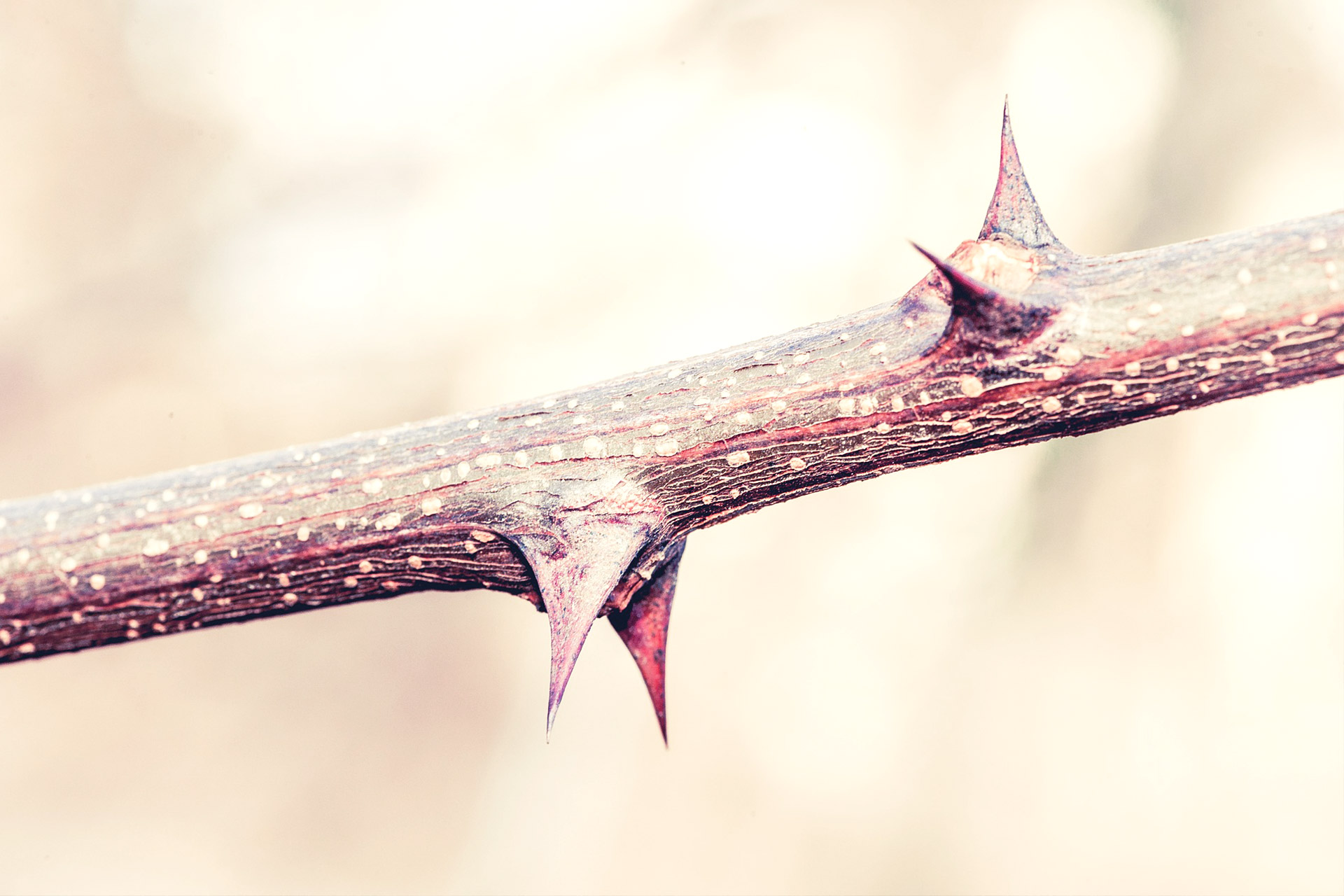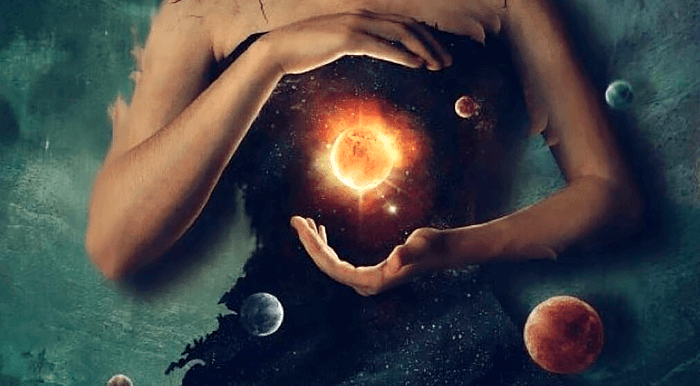
Conscious Healing: Evolving Beyond Illness with Acupuncture Treatment
“When the [body is] diseased, it is like there is a thorn, a stain, a knot or a blockage. Although the thorn may be long-standing, it can be removed. Although the stain may be long-standing, it can be wiped away. Although the knot may be longstanding, it can be untied. Although the blockage may be long-standing, it can be opened up. Those who practiced acupuncture should look for the cause of disease. Then the thorn can be removed, the dirt wiped away, the knot untied, and the blockage opened up. Even though a disease is long-standing, it can be stopped. Those who say these conditions cannot be treated have not yet realized their skill.” From the Chinese medical classic “Ling Shu/The Spiritual Pivot.”
Chinese medicine provides us with a different context of healing. Classical medical acupuncture language is rich in imagery, providing both concrete physical observations about the body along with evocative metaphors intended to arouse the spirit and spark the mind. When we talk about healing within the classic Chinese medical context, the discussion is always about wholeness. We want uncomfortable symptoms to disappear and physiological function to be at their best. But we also look at each person in terms of their happiness, fulfillment and sense of overall animation about life. Diagnosis within the classical Chinese medical model is truly body, mind and spirit medicine.
It is a system that honors the totality of our being.
Problems within the body can come from many sources. Outer forces can inhibit the body’s best function, acting like a thorn that has imbedded itself into the skin, creating discomfort and an overactive immune function. Problems can also originate from within the body. Our diets and emotions can create knots in the digestive and respiratory systems blocking the flow of vital energy, blood and fluids. All blockages inhibit ideal body function.

As human beings we are intimately connected to our ancestry, our culture and society. We inherit conditions from our families. We also absorb beliefs and tendencies from the social world around us. Some of what we inherit can feel like a stain upon our sense of self, making us feel vulnerable, tainted or impure. The ancient Chinese observed that sense of self is just as influential to physical and mental health as something tangible like a virus. We know this in our modern medicine especially within the fields of psycho-endocrinology and psycho-immunology. A sense of being stained has been shown to create situations as severe as autoimmune conditions. The way we feel about ourselves influences how our immune systems will treat our bodies. The state of our mind and our belief systems can either strengthen or weaken us.
Acupuncture is a healing system that helps us wash away the stains, pull out the thorns and untie the knots preventing us from living our best.
I’ve found it to be amongst the most empowering treatment modalities I know. This is because it uses what we already have. Acupuncture works through stimulating special “points” on our bodies that regulate, strengthen and empower our best physiological function. Unlike taking a pill or consuming a substance, acupuncture doesn’t require something outside of ourselves for healing to occur. If anything, acupuncture teaches us how to heal ourselves. It shows us in a very physical, instinctual, immediate way how powerful we are. We come to experience and know that we hold within ourselves the power to heal, evolve and manifest our greatest potentials.
Acupuncture works on a subtle level within the body. Yet at the same time it is very tactile. There are over 365 acupuncture points on the body. They can all be accessed on the surface of the skin. It is what is inside of these points that can seem somewhat magical however. The ancient Chinese were profoundly interested in exploring the energies that made the body work. They looked at the vitality or “qi” that created function and form. They discovered it was through the acupuncture points that this vitality or qi could be accessed and manipulated in the human body. If some aspect of the body, mind or spirit is not working well, it is because there is a lack of adequate qi flow into the area. This is often due to blockage or accumulation somewhere else. Acupuncture points are part of a vast system of vital animation. They are like depots along a waterway. The waterways conduct qi throughout the body. These waterways are called “meridians.” They flow to every area of the body, and affect every aspect of human physical and mental function. They are likened to waterways, irrigating all areas of the body with life. Healing occurs through adjusting the flow of qi through these meridians, freeing up the waterways to ensure adequate hydration.
One of the most famous beliefs in Chinese medicine is the one presented at the beginning of this article. To the ancient Chinese there are no incurable diseases or conditions. If a cure cannot be found, it usually means a part of the energetic body has yet to be accessed, empowered or awakened.
My wise teacher would always tell us “there are no incurable diseases, only incurable people.”
If a person is unwell, they have just not found a way to heal yet. Acupuncture began as a Taoist form of medicine, inspired by the wisdom and philosophy of mystics and spiritual seekers. Treatment with acupuncture is the process of awakening the consciousness of healing. It helps us find the way: the Tao. To the ancient Chinese there is always a way. We may have just not found it yet.
Therefore the most important part of the healing process is hope. Hope allows us to keep searching within ourselves. It stimulates fortitude. This is the so-called spiritual aspect of healing. Before our bodies can begin to heal themselves, we need to excite within ourselves the belief that we can heal: to find the pleasure in learning how to evolve and change – two things that are most needed in any healing process.
Healing is a type of evolution. It requires us to change – even if that change is merely in our thinking. But when we find ourselves in a difficult situation like an illness, or a point in our lives where we feel unhappy or lost, it can be hard to know how to change. The first step is simply acknowledging that something is not working. I like to think of this as becoming present with what is occurring in our bodies, minds and lives. Rather than ignore, distract ourselves or run from our discomfort and pain, the challenge at this point in time is to be with the discomfort. We must become curious about it; begin to ask ourselves first what we are feeling and then why we are in the place where we are. Sometimes the answers to this question are easy. We know we are having digestive problems because our diet hasn’t been very healthy. And we may know why we are eating bad food too – maybe for emotional reasons. Or, maybe we know we are always tired because we don’t allow ourselves enough sleep. Maybe a trauma occurred and we feel sad, angry or scared.
When we can identify what we are feeling and then the possible reasons as to why we are where we are, this can be comforting. It’s easier to begin to change something when we can identify and name it. Yet there also instances where we can’t identify the problem. We may just feel something is wrong. Our body isn’t working well and we don’t know why. Or we don’t feel happy, or we can’t sleep or relax, even though we do everything we are supposed to do. We don’t drink much, eat well, try to go to bed early. Situations like this can be challenging to deal with. They can make us feel powerless. They require some detective work on our part.
During the two thousand years of its development, Chinese medicine has discovered and refined a powerful method to look into the body – beyond what we can identify mentally. Pulse diagnosis is a way to read what the body is doing on a very subtle energetic level. For example, insomnia that occurred without any discernible event can often be due to the energy of the Kidneys not supporting the Heart. In Western medical terms, this can be seen as an endocrine dysfunction. But within the system of Chinese medicine, there’s a tremendous depth of possibility to this dysfunction. Organs are seen as systems in Chinese medicine, with a vast array of functions. For example, the Kidney system contains functionality of the prostate, ovaries, bones, brain, the Willpower and hormonal system in addition to that of Kidney organ function.
Chinese medicine acknowledges that a multitude of things can disrupt any of the organ systems of the body. For example, a fright or a major “insult” to a person’s self-esteem can damage the Kidney system. This dysfunction can manifest in a number of ways: as back problems, urinary difficulty, high blood pressure, loss of willpower, excessive sexuality – even insomnia. Volumes upon volumes of scholarly writings detail possibilities of the body’s reactions to various traumas and challenges. Particular signs and symptoms classically indicate certain organ system dysfunctions. However it is through the pulse that specific changes in the organ systems can be discerned. For the person whose insomnia is rooted in dysfunction of the Kidney system, indications will show in the Kidney position of the pulse. Insomnia can come from many different sources. Insomnia coming from Kidney dysfunction must be treated very differently from insomnia that is coming from problems in the Stomach or Liver. The pulse is a good way to identify where a problem may be coming from.
Once we’ve identified where a problem is coming from, it’s time to begin exploring the source of our distress. What this really means is: once we become present with what we are feeling – our symptoms and state of being, then we can start giving the affected system the attention it is asking for. We can start exploring various aspects of ourselves we may have either become stagnant in or negligent of. We may even be drawn to aspects of ourselves we never gave much thought to, or something we didn’t even know was there. Our problem can thus become a catalyst for self-exploration, greater self-awareness and even transformation.
Our diseases and dysfunctions are often messages from our bodies that it’s time for something to change.
We need to either let go of something we are holding onto, or begin to embrace something we may have been resisting. This can be difficult, even be painful. But it can also be very exciting and tremendously rewarding. It can be the seed of our own conscious evolution.




No Comments